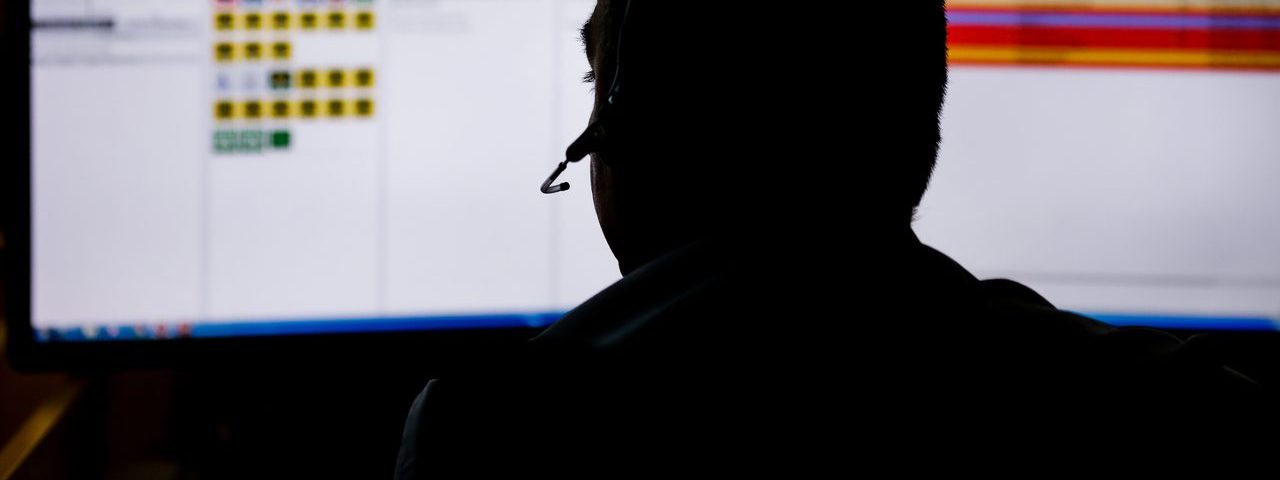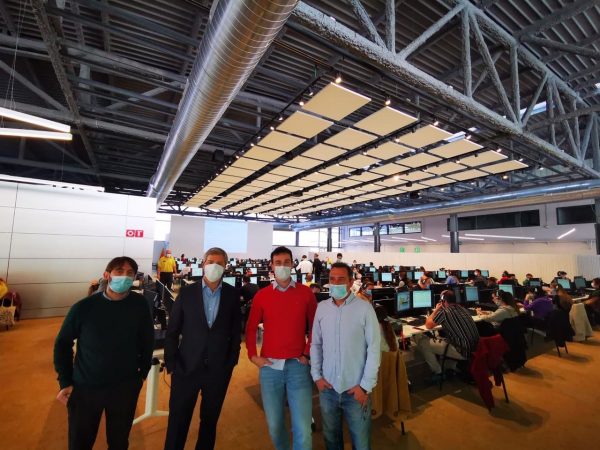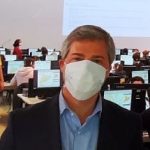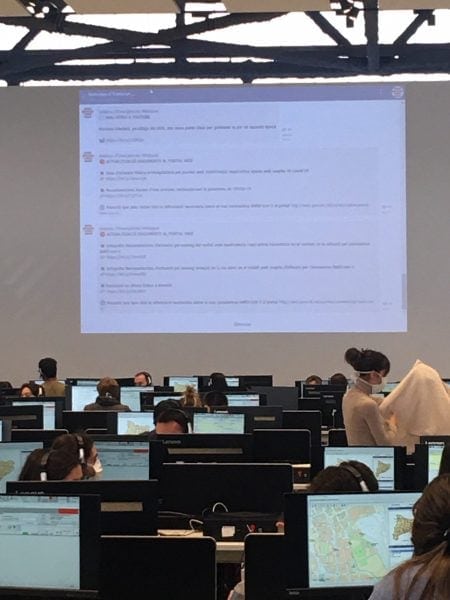
Along with the healthcare providers who are caring for coronavirus patients, there are other groups of professionals associated with health centers and hospitals that are also on the front lines during this time of the COVID-19 pandemic. The work done by cleaning staff, kitchen staff, ambulance drivers, trash collectors, and those providing phone assistance is essential to keeping everything running smoothly.
When a spike in the initial cases was first detected at the end of February, health authorities recommended that citizens call numbers authorized for phone assistance before going to a health center or their local hospital’s ER.
Patients with mild respiratory symptoms – fever, cough, and shortness of breath – are given instructions on how to isolate themselves at home; meanwhile, those with more serious symptoms are urged to go to the ER or a hospital. The goal is to avoid the collapse of in-person healthcare services, while also avoiding the creation of large groups of people to prevent the spread of the disease.
Answers to the demand for information
The number of calls has increased so dramatically since the start of this crisis that the infrastructure and resources available weren’t enough, and they needed backup, both in space as well as in tech systems and human resources. In Catalunya’s 061 emergency medical service, for example, where there are usually 5,500 calls a day, this number has surpassed 35,000 per day.
Faced with this emergency situation, the Ministry of Health and the autonomous communities agreed to bolster phone help lines to respond to all of the requests for information.
In the case of Catalunya, 463 Agents needed have been added to date, and they are working with the SEM’s doctors to report, carry out prior screenings, and detect potential coronavirus patients, making them one of the largest information hubs in the Catalan health system, as it stimulates information and decision-making for the community’s residents.
Some autonomous communities have implemented a phone-based information center dedicated solely to received calls related to the coronavirus. In the center in Castilla-La Mancha, (900 122 112) there is a team of 40 operators responding to health-related calls and three leaders who oversee the over 10,000 calls that come in each day from residents in the five provinces: Guadalajara, Cuenca, Toledo, Ciudad Real, and Albacete.
One of the autonomous communities that has been hardest hit by the pandemic is Madrid. Along with the 112 line for emergencies, residents may also use the local helpline, 010 Línea Madrid, which can answer any questions on the services provided in the region. The 400 professionals working in this service receive over 15,000 calls each day, 24 hours a day. Nowadays, following security measures outlined by the Government, most of them do so while working from home to prevent potential outbreaks among staff.

Phone assistance to keep ERs from collapsing
Lines for health assistance services and answering any questions regarding the coronavirus have increased as the emergency has become more urgent. Most autonomous communities have authorized specific numbers to handle questions and keep the 112 line from collapsing. The Ministry of Health released the list of numbers available on their web page.
These are the numbers for each community:
Andalusia: 900 400 061 / 955 545 060
Aragon: 976 696 382
Asturias: 900 878 232 / 984 100 400 / 112, then dial 1
Canary Islands: 900 112 061
Cantabria: 900 612 112
Castilla-La Mancha: 900 122 112
Castilla y León: 900 222 000
Catalunya: 061
Ceuta: 900 720 692
Community of Madrid: 900 102 112
Community of Valencia: 900 300 555
Extremadura: 112
Galicia: 900 400 116
Balearic Islands: 061
La Rioja: 941 298 333
Melilla: 112
Murcia: 900 121 21
Navarre: 948 290 290
Basque Country: 900 203 050
Health continues to be of special importance, and those who have minor symptoms or have been contact with someone affected by the disease should not go to the health center or the hospital. The first measure is staying home and calling the phone numbers provided for getting information. Steps will be given depending on the symptoms present: quarantine at home or following the relevant protocols given.






There are no comments yet